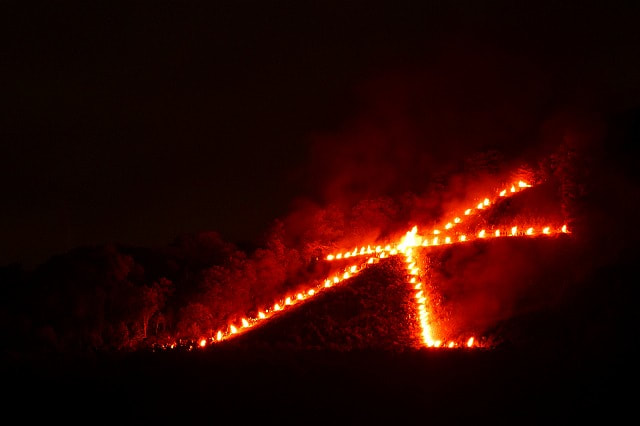What is Obon in JapanWhat is Obon? If you were asked, what would you say? Although you may have heard about the day of your ancestors' return, you may not be aware that the date of the festival differs depending on the region where you live, or you may not be aware of the words "Shin-Bon" and "Hatsu-Bon," or the events that were born out of this festival. Obon, officially called "Ura-bon-e", is the period of time when the spirits of the deceased are brought back to this world (this world) from the Pure Land called the other world. During the Obon period, the spirits of the deceased family members and ancestors are welcomed and offered to the deceased. When does Obon start and end?The Obon period is generally considered to be four days, August 13th to 16th. In 2020, it will be Thursday, August 13th to Sunday, August 16th. The 10th August (Monday) is a national holiday, so if you can take the break on the 11th and 12th, you will have 9 consecutive holidays. In the past, the Obon holidays were from July 13th to 16th in the lunar calendar. In the new calendar, it is from the middle of August to the beginning of September. The origin of Obon is not well known, but there seems to have been a tradition in Japan since ancient times to make offerings to our ancestors in midsummer. It is thought that the Buddhist event called "Ura-bon-e", which takes place on the 13th to 16th of July in the lunar calendar, was introduced to Japan, and gradually became one of the most popular events in Japan. In 1873 (Meiji 6), Japan adopted the new calendar, and in many areas, the event was moved back by exactly one month (i.e., delayed by a month) to be held around August 15 for ease of understanding. This Obon is sometimes called "Kyuubon" or "Old Obon" because it is so close to the former lunar calendar. What do you do on Obon?There are many different Obon traditions depending on the region. ● 1st The first day of the month of July or August is called "Kamabutaitachi", which is the day when the lid of the cauldron of hell is opened. This is the day when the cauldron of hell is opened, we will prepare for the following. - Cleaning the graves and visiting the graves. - Cleaning of Buddhist altars - Preparing a tray of lanterns, etc. ●13th In the evening, we light a "welcoming fire" to welcome our ancestors. The fire is made in the hope that our ancestors will not get lost.... ●14th and 15th It is believed that your ancestors will stay in the spirit cabinet during the Bon Festival. Make an offering of fruits, sweetmeats and food. ● 16th The ancestors are said to stay at home until the morning, so we make an offering in the morning. In the evening, when it gets dark, we make a "sending-off fire" and send them off. However, in reality, most people don't have the ability to make a fire. In modern times, electric tron lanterns are often used. When are you going to clean up the trays?After the send-off fire is over, we clean up that day, which would be the evening of the 16th. In some cases, you may have the send-off fire until late on the last night, in which case you will clean up the next day. What are some of the Obon events?The events and customs of Obon vary from region to region. Some of the unique events that have been nurtured in each region are still very much alive as a local tradition. Here are some examples. Gozan Okuribi On August 16, a fire is sent off on five mountains surrounding Kyoto: Higashiyama Nyoigatake, Matsugasaki Nishiyama and Higashiyama, Nishigamo Funayama, Daihokuyama, and Mandala Mountain. It is a traditional event to send the spirits of the Obon festival called "Shorai", also called "Daimonji". Shoronagashi This is a traditional event held in Nagasaki Prefecture on August 15 every year to send the spirits of the deceased off to paradise. The spirits of the deceased are paraded through the city on the occasion of the New Festival (Hatsu-Bon) on a large wheeled spirit boat, instead of being floated down the river.This is a very loud event, with bells set off and firecrackers set off in large quantities as they shout "doi, doi! This is the tradition of welcoming your ancestors and spending time with your family during the Obon period. This year, we have seen cases of people not being able to return home and being separated from each other, but let's pray that next year we will be able to spend time with our ancestors and their families.
Comments are closed.
|
Details
AuthorArrows International Realty Corp. Archives
June 2023
Categories
All
|

 RSS Feed
RSS Feed